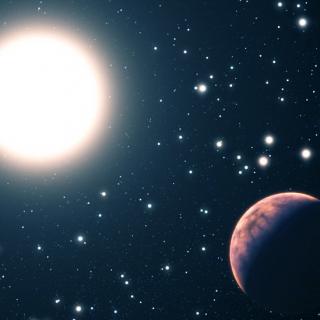Bibcode
Adibekyan, V.; Santos, N. C.; Figueira, P.; Dorn, C.; Sousa, S. G.; Delgado-Mena, E.; Israelian, G.; Hakobyan, A. A.; Mordasini, C.
Referencia bibliográfica
Astronomy and Astrophysics, Volume 581, id.L2, 4 pp.
Fecha de publicación:
9
2015
Revista
Número de citas
58
Número de citas referidas
49
Descripción
Aims: The main goal of this work is to study element ratios that
are important for the formation of planets of different masses.
Methods: We study potential correlations between the existence of
planetary companions and the relative elemental abundances of their host
stars. We use a large sample of FGK-type dwarf stars for which precise
Mg, Si, and Fe abundances have been derived using HARPS high-resolution
and high-quality data. Results: A first analysis of the data
suggests that low-mass planet host stars show higher [Mg/Si] ratios,
while giant planet hosts present [Mg/Si] that is lower than field stars.
However, we found that the [Mg/Si] ratio significantly depends on
metallicity through Galactic chemical evolution. After removing the
Galactic evolution trend only the difference in the [Mg/Si] elemental
ratio between low-mass planet hosts and non-hosts was present in a
significant way. These results suggest that low-mass planets are more
prevalent around stars with high [Mg/Si]. Conclusions: Our
results demonstrate the importance of Galactic chemical evolution and
indicate that it may play an important role in the planetary internal
structure and composition. The results also show that abundance ratios
may be a very relevant issue for our understanding of planet formation
and evolution.
Proyectos relacionados

Pruebas Observacionales de los Procesos de Nucleosíntesis en el Universo
Recientemente se han llevado a cabo varios análisis espectroscópicos de estrellas con planetas. Uno de los resultados más relevantes ha sido descubrir que las estrellas con planetas son en promedio más metálicas que las estrellas del mismo tipo espectral sin planetas conocidos (Santos, Israelian & Mayor 2001, A&A, 373, 1019; 2004, A&A, 415, 1153)
Garik
Israelian